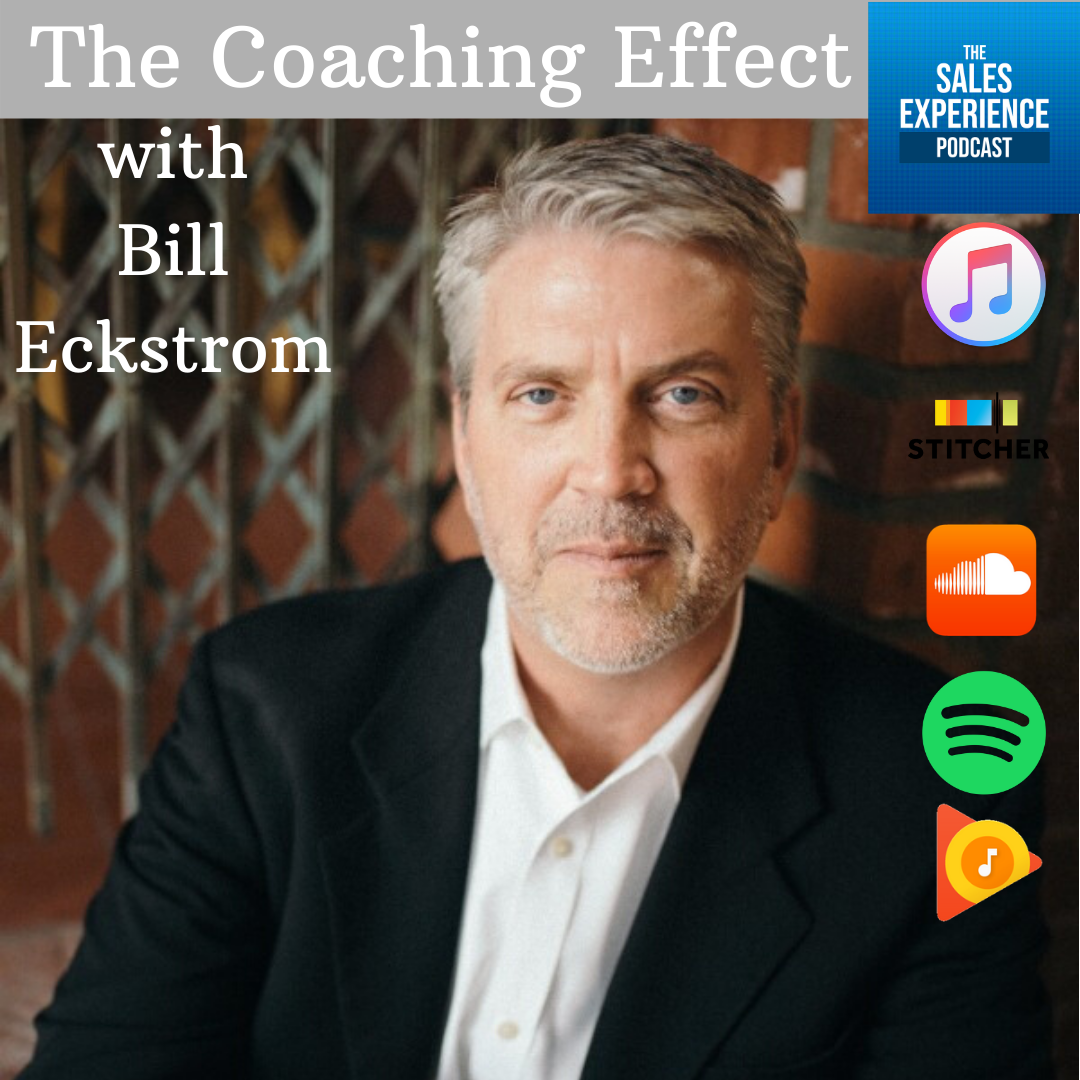Episode Transcript
Jason [00:00:00]:
This is the authentic persuasion show. What's going on, everybody? Jason Cutter here. Welcome to episode 605 of the Authentic Persuasion show. I wanted to touch on something that I've seen a few times recently when speaking with companies. And it's really resonated with them, with the leadership at these organizations in various industries. Reason. And one of the reasons why is because what every organization is faced with or working to overcome or trying to maintain, this is the issue with two things, silos in their organization and salespeople that are focused on salespeople and their metrics and their goals and their results.
Jason [00:00:48]:
Now, let's talk about the second part first, which is salespeople focused on what salespeople do. Part of that is just human nature, right? We're all humans. And the biggest thing is that humans, as humans, we are focused on what's in our best interest. Now, as a society, as a group, we know that it's best to put other interests first or to kind of blend the two. But at the heart of us, on autopilot, we care about what's in our best interest. That's the most important thing for us. It's our best interest. It's our survival.
Jason [00:01:20]:
It's our goals, it's our needs, it's our wants. That's what we are focused on. And so from a leadership perspective, it's tough when you have specifically salespeople, because it's a sales podcast. But this applies to all organizations, all departments, all humans. Is that when you have something that you want, as a result, as a product from somebody that's an employee of a company, then how do you get that result when that person just wants what they want and to produce what they want and in their best interest? The challenge with sales is that it's a performance based role. It's clearly performance. I need you to sell x to either keep your job or to earn more money, whatever that looks like, on the compensation plan. And so then it becomes this challenge, and it becomes sometimes this battle between two forces, which is the salesperson and what they want and the company and what they want.
Jason [00:02:12]:
Now, what the company wants is a customer, a long term customer. No matter what, even if you're in a transactional type sales process, you want that person, that customer, to buy your product, have a good experience from it, not return it, and ultimately say good things or refer other people to you, no matter what you're selling. From a transactional standpoint, obviously, if it's a non transactional, like it's a long term thing, where somebody buys it and they use that service long term or they use that product long term, right? Maybe it's a subscription model, that person who joins the gym, and obviously the goal is to get them to be a member of the gym for as long as possible. All of that is more than just a transactional thing. You have to be careful as a company. You got to balance what it is that that salesperson wants, what their incentives are, and then what the company wants. A lot of times, companies build compensation plans in the rules of the game that are opposing each other, which is, hey, salespeople, here's all I care about. Sell this many units a month or a quarter or a year, or generate this much revenue.
Jason [00:03:17]:
That's all I care about. Here's what we want. If everyone can do that, then we're winning and we're great, right? We're fat and happy, and this is amazing. The challenge is that if you put that out there and say, we don't care how you play the game, just close us deals and make us money, what happens is you get customers who aren't sold in the proper way, the expectations aren't set correctly, they're undersold, they're oversold, they're wanting to do discounts so that they can just get the units, overcharge people, because that way they can generate more revenue. And again, this is where car sales has such a bad reputation, because that's essentially the business model, which is sell as many cars as it takes, make as much money as you can. Here's your commission plan. And so then you leave people up to their own devices to play the game however they want, right? It's like if we all sat down to play Monopoly, except the one rule was, get as much money as possible, end the game with as much money as possible. And it doesn't matter how you do it, right? Then all of a sudden, how do you even play Monopoly? Because now all the rules are different.
Jason [00:04:25]:
Like, I'm just going to reach into the bank and take all the money possible before you even think of that as a solution. And then I win and you lose, right? But that's terrible, right? That would not be fun. And what's the point of that? And so as a company, you have to build a compensation plan and the rules of the game around what you want, which is a long term client and a long term success. But that gets into a difficult position, because then salespeople want to play this game over here. They don't want to be held accountable sometimes or they shouldn't be held accountable for what happens after the person signs up as a client. And so there's a lot of things, and I could make this a really long compensation plan rule podcast episode, but I'm not. The point is that companies struggle with the silos, right? And a silo is where you have a department, and that department is playing a different game or feels separate or makes themselves separate from other departments. So think of, like, silos, grain silos, where it's like, I have this silo here and this silo here.
Jason [00:05:24]:
And it's a term usually referencing sales and marketing and all these. It's usually sales related and marketing related. And they have their silos and they play in the game mostly because each department has a different game that they're playing with different rules and different KPIs, right? Key performance indicators. So what happens is everyone's playing a different game, right? You're playing chess, I'm playing Monopoly, and then somebody else is playing trouble, right? And so everyone's playing different games and has different outcomes and metrics. The problem is we're all part of one organization. And so how do you even do that? And so one of the biggest things, and this is what I tell companies, and this is what I focus on helping them. And if you're a leader in an organization, then this is something for you to take and look at and see what you can do, which is there's only two things that matter for a company. One is the customer.
Jason [00:06:17]:
The customer only cares about themselves and the outcome that they're looking to achieve. They want to get to a better place, whether it's out of pain or to achieve some kind of goal or to gain something, right? Because it's not always pain. Sometimes it's gain. They want to get to a better place, and they want what they want, and they only care about themselves. The company itself only cares about itself and its success. First its survival, then its success, and then its significance. Because all that matters is customers and revenue and the company as a whole. Which means the company doesn't care about the departments.
Jason [00:06:53]:
The customer doesn't care about the departments. Like at those two levels, the customer doesn't care about marketing's KPIs, then sales KPIs, and then customer service and operation and onboarding and retention and billing. They don't care. They want what they want. And they don't care about departments and metrics and quotas. They don't care. They want what they want. So they don't see departments.
Jason [00:07:18]:
They see the solution that they're trying to get the company sees customers and revenue and then has to fill in departments to manage the workload. But ultimately that doesn't matter either. And so the key is that when you're in an organization, if you're in a department, which you are, unless you're leading a department, but then you're still in a department is you've got to focus on how you break that down. Break down your silo, get rid of the silo that you're currently playing in. Include other departments, understanding it doesn't matter because the customer is all that matters, right. If you're sales and you're like, marketing keeps giving us bad leads and marketing is doing this and customer service is messing up my deals. After they like, stop, take a look at it, communicate with those departments. Look at it from the customer perspective.
Jason [00:08:05]:
Your goal should be to produce successful customers for the company. That's all that should matter. Everything else in the middle is just some process. All that matters is the customer and the customer success. Now, customer success is a buzword and it's a term that a lot of people use, and it's really popular. I focus on sales success and sales experience versus customer experience, because you can't have customer experience until you're a customer. A lot of times they try to lump in marketing and sales, but it's like you can't because it leads to customer success, but you're not a customer yet. So it's the sales experience, right.
Jason [00:08:41]:
It's the revenue generating experience, not the customer experience. But either way, it's one flow, it doesn't matter. And the customer should flow through. They shouldn't know the difference between the departments. They shouldn't recognize a difference, and they should just get what they want. And then ultimately that means the company is getting what they want. Now, why does this keep coming up in organizations? Well, I'm dealing with companies that have salespeople that are struggling to be compliant, struggling to produce results, struggling to generate good clients that are happy with what they were told they were buying, and then actually getting that product delivered to them and getting it fulfilled. Right.
Jason [00:09:21]:
Because again, salespeople are focused on themselves and not thinking about the organization as a whole or the customer. It's like, I just want to get paid and I want to move on. And of course, that doesn't work long term. You can't scale that. You can do that short term. Right? You can do that successfully a little bit. Historically, that worked okay. Now with the Internet and transparency, if you do bad stuff, like if you're a salesperson and you're only caring about yourself.
Jason [00:09:47]:
And you're selling people in the wrong way, setting the wrong expectation. At some point that reputation is going to catch up with you online and it's going to be harder and harder for you to make new sales. You cannot run from that. You can't move towns over and over again like the old snake oil salesman. You have to focus on the right thing. When you focus on the right thing for the customer and the company, then it's game on. And I'm telling you, like, if you're in a sales role, if you can do that, if you can shift that mindset, your company will appreciate it, your customers will appreciate it, and you will become a rock star. Not a rock star because you closed the most units and made the most revenue as one stat, but because you're dealing with both of those parties, keeping both of those parties in mind and just doing the right thing for both of those parties over what your instincts might tell you from the human side, from the self centered side.
Jason [00:10:39]:
For companies and for leaders out there, here's the big key, is empower your people. Help your people understand what they're a part of. This is why company culture is so important. You got to have a strong mission, vision and core values. Everyone has to understand it. You have to hire the right people who are a good right fit, cultural fit for the organization. You have to remove the people who are a bad fit, the wrong fit for the company culture. Make sure you have, as Jim Collins says, and good to great, got to have the right people on the bus first, then get the right people in the right seats, and then it's game on, right? And so that's the part that matters the most.
Jason [00:11:18]:
If you have a whole bunch of renegade salespeople, top performers who are toxic, selling the wrong thing, selling bad deals, making a mess everywhere, not playing well with others, you're never going to scale and you're never going to win.
![[605] How To Get Rid Of Silos](https://episodes.castos.com/salesexperiencepodcast/images/1510659/How-To-Get-Rid-Of-Silos.png)


